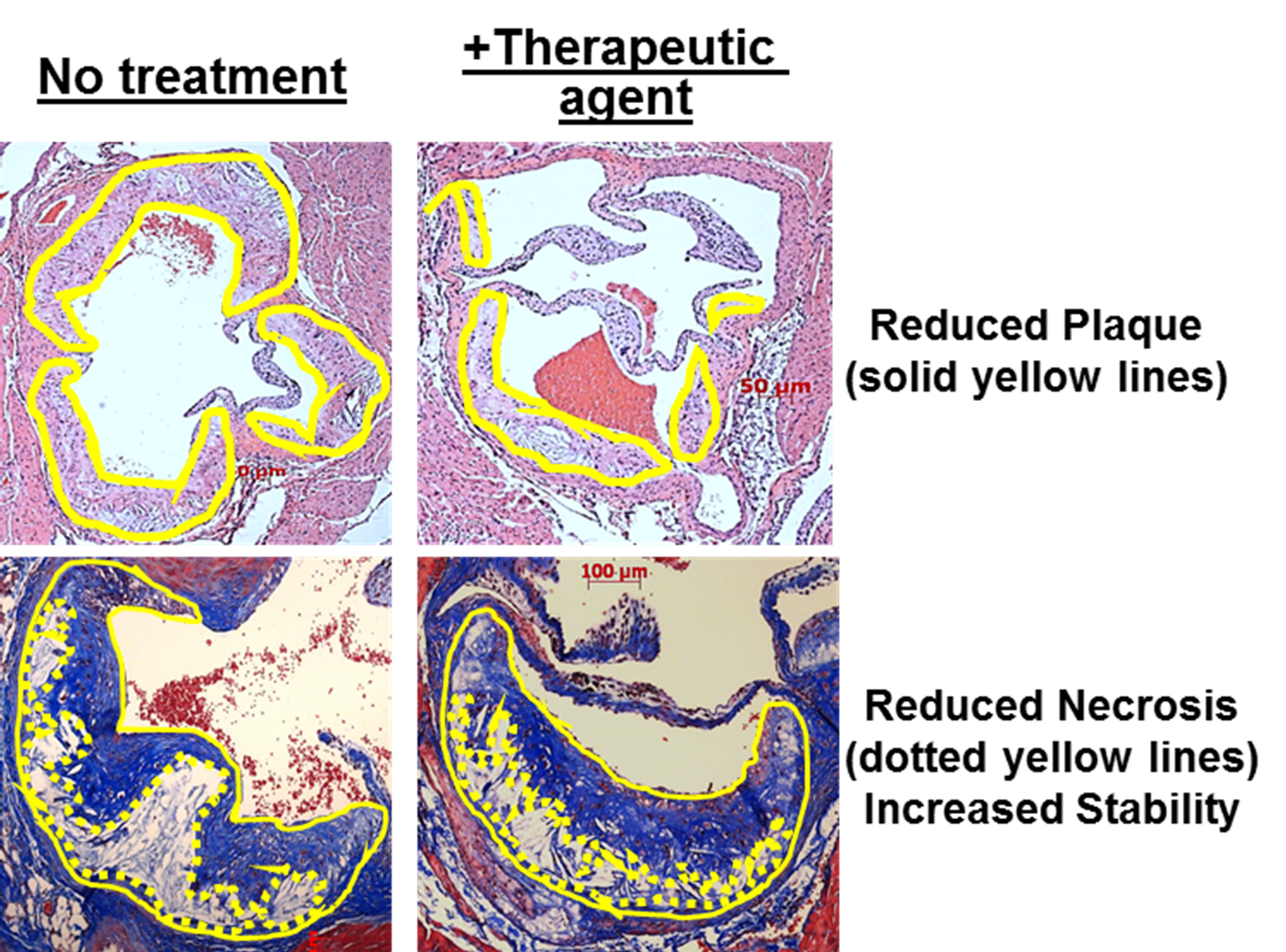Biomedical Engineering
Targeted Therapeutic Approaches for Reducing Atherosclerosis
Cardiovascular disease (CVD) continues to be one of the leading causes of morbidity and mortality in most parts of the world, number one in U.S. Common approaches to reduce atherosclerotic plaques hinge primarily on surgical options. Researchers from VCU have developed a novel system that uses a surface targeted approach to regress CVD by delivering anti-atherogenic agents. The therapeutic specifically targets macrophage foam cells or hepatocytes in the liver to deliver anti-atherogenic agents such as the CEH gene to enhance the removal of cholesterol. This approach is safe and allows removal of cholesterol without invasive procedures. This invention is a disruptive technology, which allows the reversal and removal of plaque buildup that not only reduces the arterial plaque burden (cause of CVD) but also enhances plaque stability (cause of acute coronary events).

The technology
The application proposed herein focuses on two of the most critical cell types (atherosclerotic plaque-associated macrophages and hepatocytes) involved in the etiology of atherosclerosis via active targeting mechanism. Successful completion of this application is to fulfill targeted delivery of therapeutics to atherosclerotic plaque-associated macrophages and/or hepatocytes to reduce the existing atherosclerotic plaque burden (or plaque regression) for which no therapeutics are currently available.
This invention has been prototyped with in vitro and in vivo testing.
